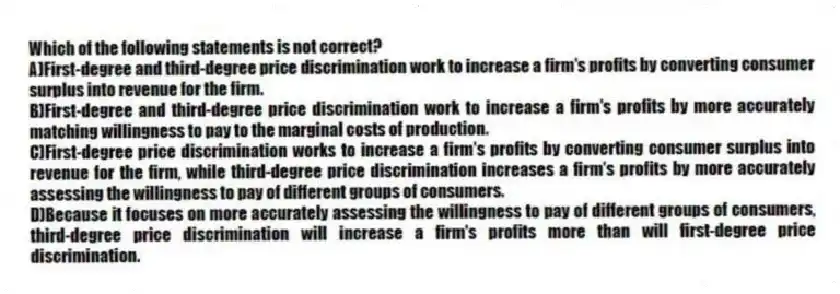
Which of the following statements is not correct?
A) First-degree and third-degree price discrimination work to increase a firm's profits by converting consumer surplus into revenue for the firm.
B) First-degree and third-degree price discrimination work to increase a firm's profits by more accurately matching willingness to pay to the marginal costs of production.
C) First-degree price discrimination works to increase a firm's profits by converting consumer surplus into revenue for the firm, while third-degree price discrimination increases a firm's profits by more accurately assessing the willingness to pay of different groups of consumers.
D) Because it focuses on more accurately assessing the willingness to pay of different groups of consumers, third-degree price discrimination will increase a firm's profits more than will first-degree price discrimination.
Correct Answer:
Verified
Q19: The suggestion that a seller will try
Q20: When the marginal revenue resulting from a
Q21: As macroeconomic conditions improve and consumers' incomes
Q22: Which of the following would not be
Q23: As the price elasticity of demand for
Q25: Which of the following is an example
Q26: All else constant,there is an inverse relationship
Q27: Which of the following is not cited
Q28: Applying a uniform markup to set the
Q29: Promotional pricing would best be categorized as
Unlock this Answer For Free Now!
View this answer and more for free by performing one of the following actions

Scan the QR code to install the App and get 2 free unlocks

Unlock quizzes for free by uploading documents